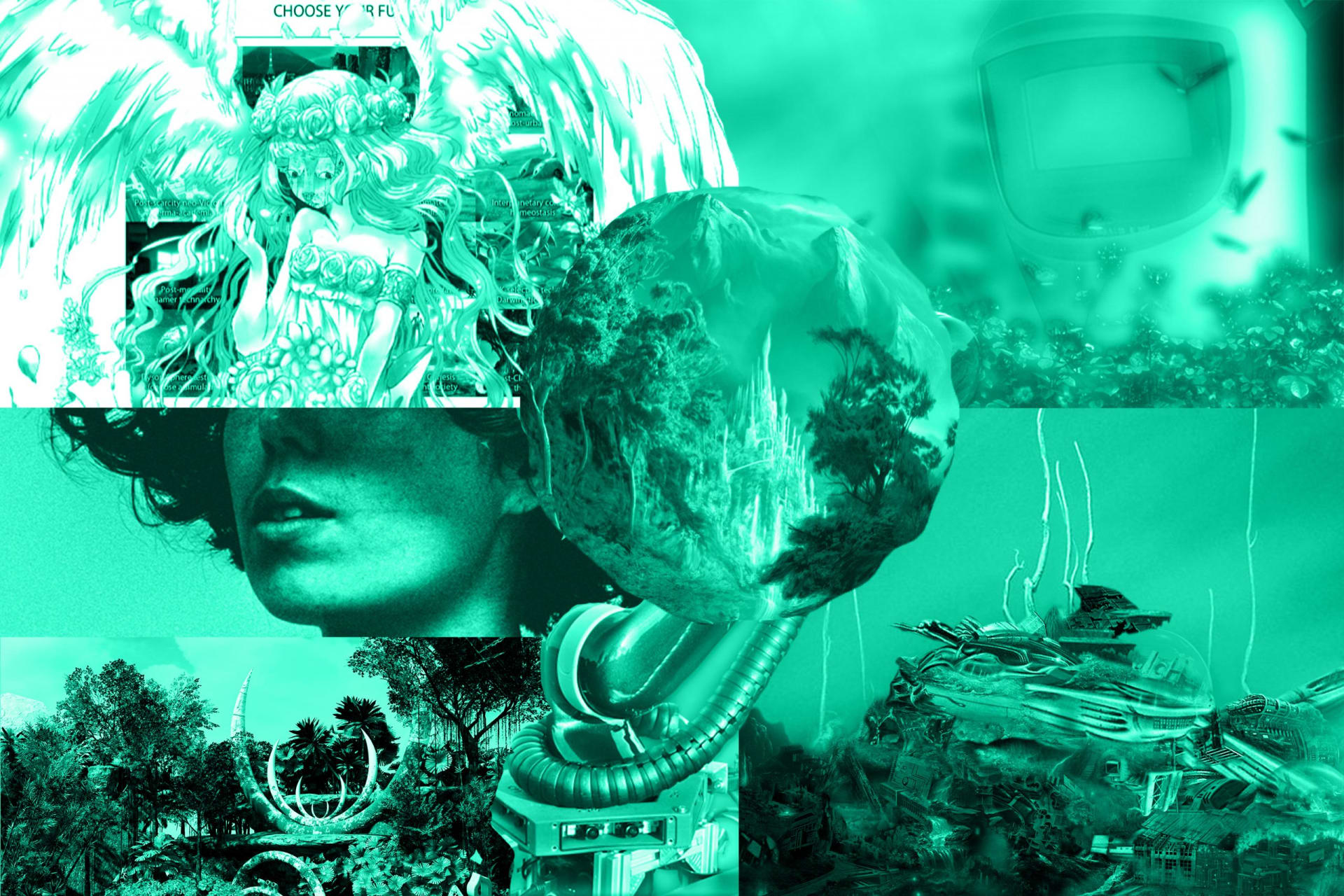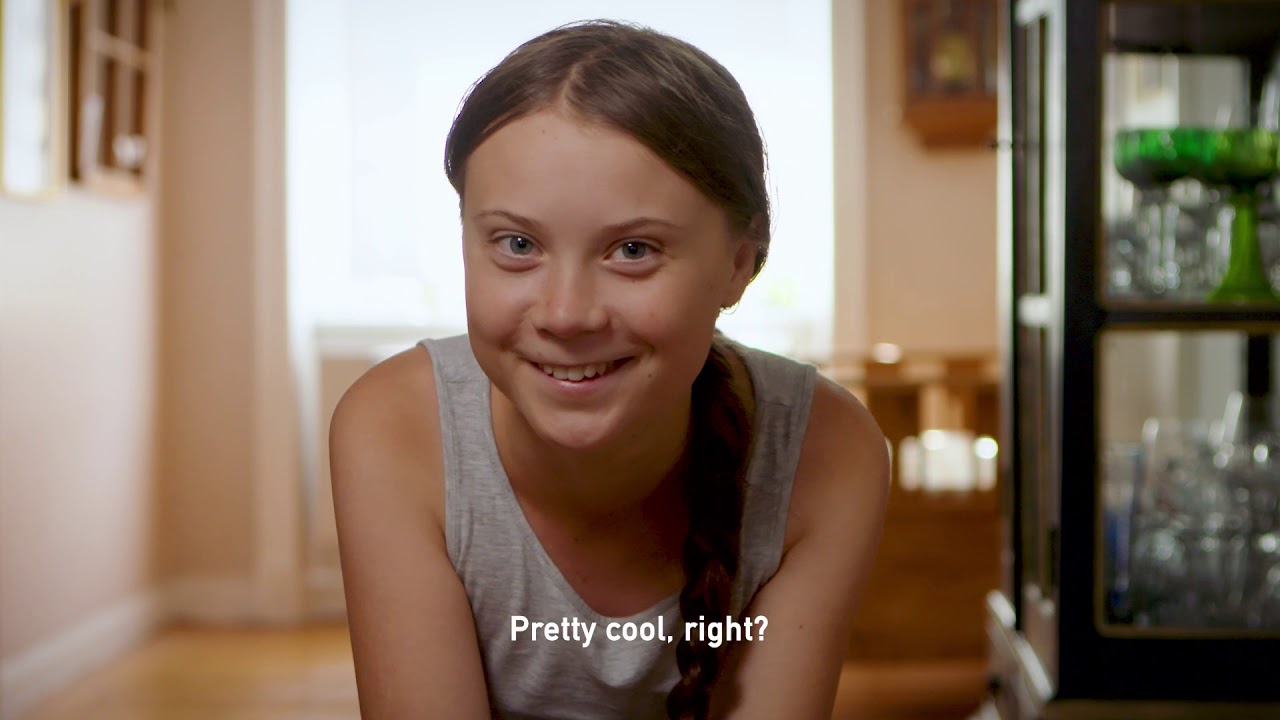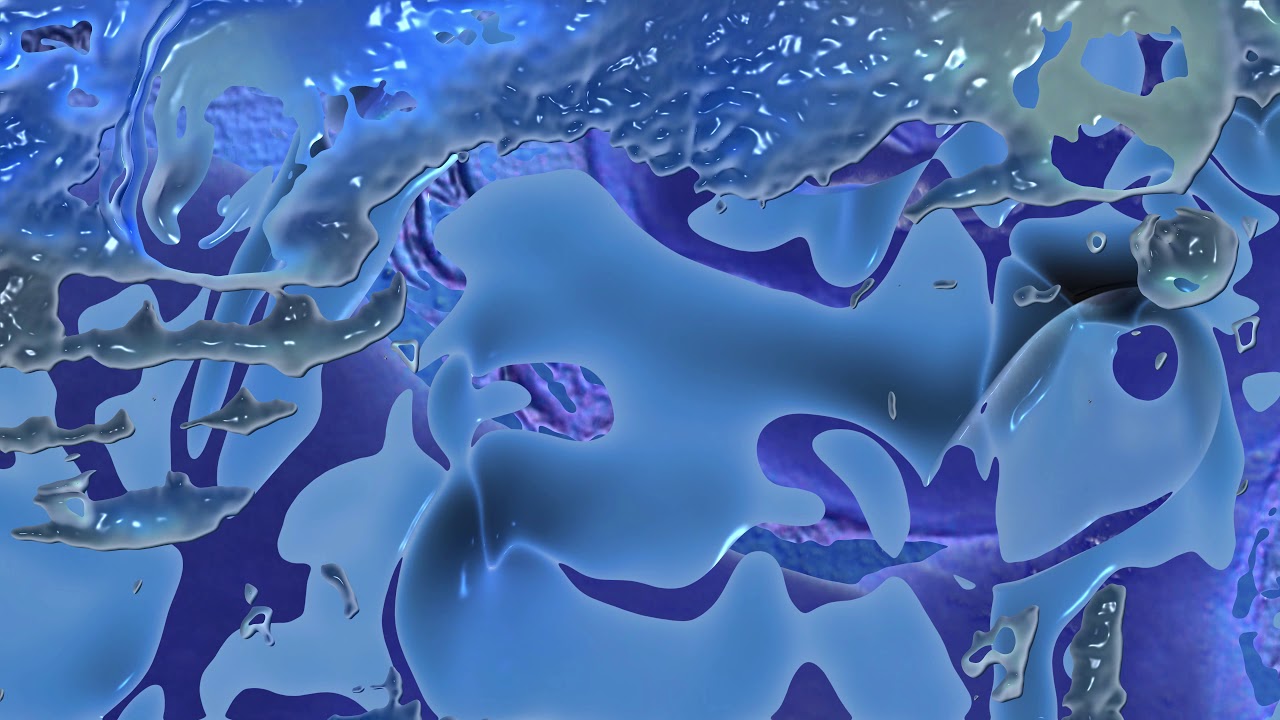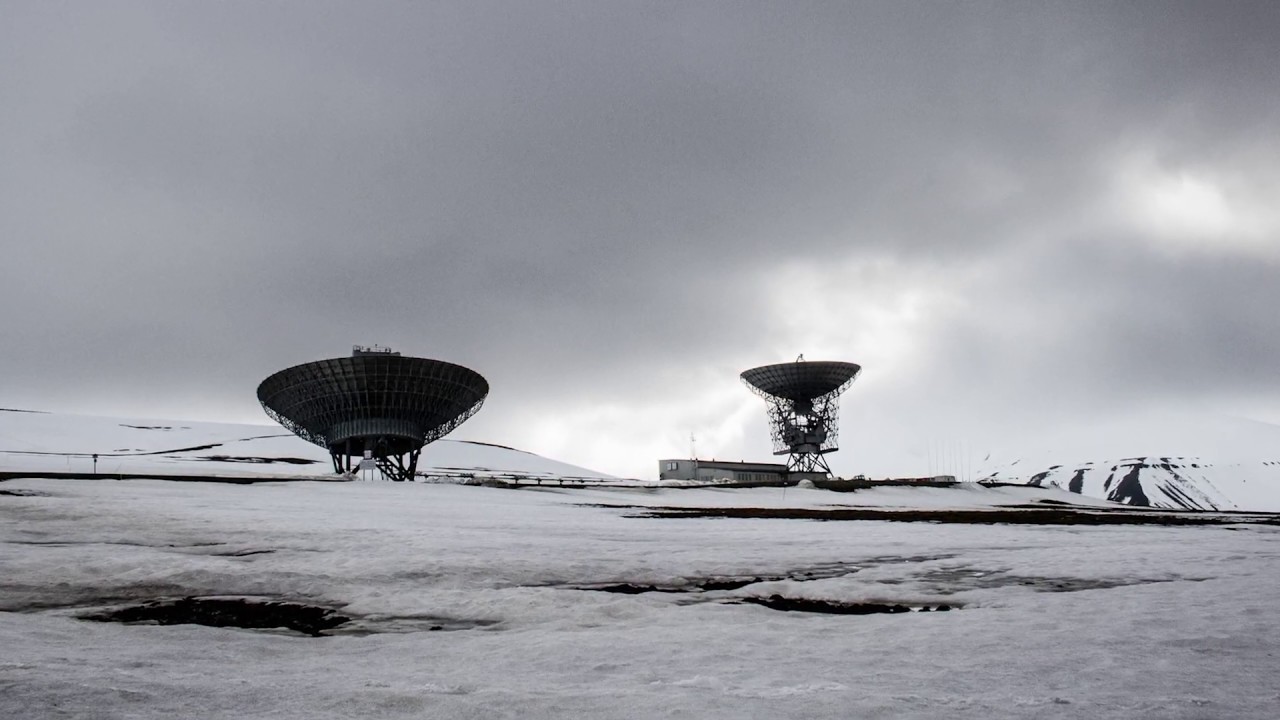
How Does Electronic Music Respond to Climate Change? Enter the World of Eco-Aesthetics
Artists like Grimes and Kelly Lee Owens are pioneering an emerging field of environmental aesthetics with their pensive, ethereal symbolism.
In February, Grimes introduced the world to Miss Anthropocene: a moody, high-gloss embodiment of the environmental crisis. Less than a month later, with the advent of COVID-19, everything came to a halt. As this new normal of social isolation ensues, our tense relationship with the environment becomes even more heightened. Against our will, we have been pushed towards the very drastic transformations, such as reducing our daily carbon emissions, that climate scientists have been advocating for years. Mother Nature, some cynics even claim, is finally having her revenge. But what is most obvious here is that our world is no longer as bountiful or forgiving as it once was.
Throughout Miss Anthropocene, Grimes considers these themes using a gleaming, highly stylized interpretation of a planet in decline. After the album’s debut, it was subjected to heavy criticism for playfully suggesting that new technologies would solve our current environmental issues, a belief otherwise known as techno-optimism. The general consensus ruled against her approach, positing that there’s nothing fun about climate change. While projects like Miss Anthropocene point to commercial interest in exploiting such critical issues, the record also reveals the challenges in addressing climate change through the arts, and, most notably, through electronic music.
With its cohesive pop sound, Miss Anthropocene takes substantial stylistic cues from 90’s melodic trance and early 80’s New Age genres, while its lyrics lean slightly acerbic: “We party when the sun goes low/Imminent annihilation is so dope.” This biting irony echoes Grimes’ earlier interests in post-internet culture and can be linked to the flippant online banter used to cope with the anxieties associated with an uncertain future.
The internet communities from where Grimes borrows her vernacular are therapeutic spaces for younger generations, who will be impacted the most by an ecologically declining planet. Within these e-milieus, participants thread irreverent riffs on the crisis to generate a feeling of solidarity. Networked escapism is exactly what inspired producer Herbarium for his latest EP, ХВОЯ (NEEDLES), released on Eco Futurism Corporation (EFC) in February. The techno-biological motifs used in Herbarium’s latest release and the EFC’s March compilation, ETERNAL VESNAAAAA (ETERNAL SPRING), fall under EFC’s commitment to, as label owner Andrea IV puts it, eco grime.
By loading the content from Soundcloud, you agree to Soundcloud’s privacy policy.
Learn more
Eco grime describes a blend of sounds from nature with underground club genres. EFC, Andrea IV describes, draws from the biopolitical thinking from Russian Cosmism (a cultural movement founded by philosopher Nikolai Fedorov in the late 19th century) as a source of inspiration for their eco-industrious aesthetics. Created in 2015, the label’s sonic ethos “wraps ‘anti-club’ tunes and abrasive sound design around CGI-inflected visions of the organic and naturalistic.”
The EFC catalog combines ecological soundscapes (chirping birds, flowing streams, heavy raindrops, and the like) with lush, almost hyperreal foliage imagery to create futuristic, weightless, and idyllic other-worlds. The imprint also has a sub-label, Bio Future Laboratory, whose postured faux-scientific title vaguely hints at a tongue-in-cheek critique on the recent uptick of corporate efforts towards sustainability.
By loading the content from Soundcloud, you agree to Soundcloud’s privacy policy.
Learn more
Producer, writer, and researcher Joanna Pope approaches environmentalism from a more fraught position. “I don’t know if the particular feeling I’m channeling to make a song is ‘climate anxiety’ or ‘generalized anxiety’ or an unlucky combination–and I don’t really care,” Pope wrote to me, about her EP Fantasias for Lock-In.
Much of Pope’s work concerns itself with the emerging concept of dual anti-consumerism and anti-capitalism, known as degrowth. Her record, which was released in December on Tobago Tracks, presents her emotional impulse and sort of a sentimental ode to diminishing natural resources. The work layers airy vocals over rolling kick drums and modest melodies, through three tracks titled “Terraforming Accident”, “Angels of Growth”, and “World Society 2”—each referring to the phrases that stuck out to her during her research on alternative economic models for degrowth and eco-futurity.
By loading the content from Soundcloud, you agree to Soundcloud’s privacy policy.
Learn more
Even though her own work contends with eco-anxieties, Pope isn’t convinced about artists using aesthetics to address environmental issues as a sort of topical, yet passing trend. “Nobody should feel obliged to address climate change through their art or aesthetic theories, or even to try very hard to make art about climate change in some conceptual way,” she insists. “People should have the option to also learn about, develop and work on ways to fight climate change and capitalism, and separately pursue their creative interests.”
Emotional and pedantic works, like Pope’s, essentially serve as a channel for apprehensive feelings on climate change. Yet, there are also other ways music has proven to be captivating and politically useful. An example of this is Greta Thunberg, who is dedicating her adolescent years to publicly speaking out on the environmental crisis and the consequences her generation will soon face. Last year, she launched her ‘Nature Now’ campaign featuring music from electronic producer Rone (A.K.A. Erwan Castex), who bases his upcoming album, Room With A View, around these environmental concerns. This, in itself, serves as a touchstone for music’s aesthetic potential as it’s directly linked to environmental political activism.
Outside of reflective expressions or activism, there is also a growing scientific field of research that analyzes sound recordings in order to measure and speculate on the impact of climate change within certain high-risk environments. Originally, field recordings in music referenced spatial settings and evoked sentiments around certain locations. On her upcoming May album Inner Song, techno producer Kelly Lee Owens gestures to this practice with her track “Melt”, sampling crackling ice for her bassy, mid-tempo club track and tops it off with sounds of skates gliding over ice and melting glacial terrain.
Last November, Berlin-based musical duo Koenraad Ecker and Frederik Meulyzer, known as Ecker & Meulyzer, worked along similar lines as Owens by compiling and organizing field recordings into electro-acoustic compositions for their LP, Carbon. Invoking dystopian emptiness and crumbling ruins, Carbon is based on the rising sea levels at the Norwegian seed vault in Svalbard, an Arctic storage facility that preserves seeds for replantation in case of a catastrophe.
For this project, the pair worked with ideas based on the “capitalocene”—shifting focus from the geological term “Anthropocene” and straightforwardly attributing capitalism as the driving force behind the environmental crisis. Considering the harmful effects of carbon production on the environment, Ecker and Meulyzer wanted to draw focus to the melting permafrost and conflicting private corporate investments in the storage facility. Carbon traces the high-risk environmental conditions at the sea vault as a reflective process for understanding environmental deterioration.
While eco-aesthetics in music may develop from sentiments around the crisis, anticipate technological solutions, or even tune into the sounds of rapid environmental changes, there is one prevailing piece of iconography that seems to be recurring throughout the emerging field: the spiritual deity in distress, one more disruptive and abrasive than the typical angelic savior.
A year before Grimes released Miss Anthropocene, she wrote, “There were Humans and Gods and nothing but Angels in between,” in an Instagram caption under a fluorescent CGI-rendered portrait as a teaser for the upcoming album. The celestial figures from Grimes’ album concept and referenced in Joanna Pope’s EP are not gentle or valorous. Instead, they appear intentionally evasive in their encounters with the climate crisis. The use of this motif is a pivot from the dark, alienative aesthetics of deconstructed electronic music described by Nick James Scavo’s “demonic listening in diabolical times”. Perhaps this angelic deity signals to a moment in music when a longing for environmental restoration, by any means necessary, replaces the nihilistic embrace of chaos.
Media theorist and German philosopher, Walter Benjamin wrote about a similar angelic figure in 1940 from Paul Klee’s print, Angelus Novus (Angel of History):
“[…] he sees one single catastrophe which keeps piling wreckage upon wreckage and hurls it in front of his feet. The angel would like to stay, awaken the dead, and make whole what has been smashed. But a storm is blowing from Paradise; it has got caught in his wings with such violence that the angel can no longer close them. The storm irresistibly propels him into the future to which his back is turned, while the pile of debris before him grows skyward. This storm is what we call progress.”
Progress here is portrayed as something tumultuous and chaotic. While the angel observes from the fringes, he is transfixed, unable to acknowledge a world outside the storm. As coronavirus hinders any progress for the moment, Klee’s angel is a reminder to slow down and take in everything that has led to this point. Ignoring the deterioration that’s already occurred won’t help surmount what’s ahead; the only way to move forward is to first look at the chaos behind, based within, and settling all around us.
Jazmina Figueroa is a writer based in Berlin and is currently completing a masters in anglophone modernities in literature and culture. Her published work spans topics of arts and culture, politics of technology, and digital media theory. Follow her on Twitter @Jazmazzzz.
Published April 02, 2020. Words by Jazmina Figueroa.




